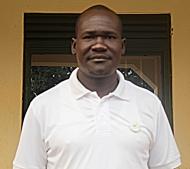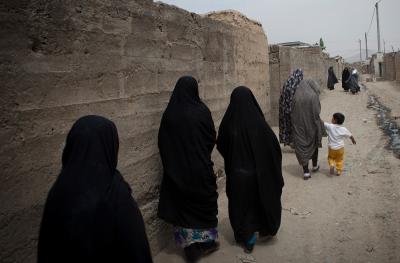It has been over a year since the conflict formally ended in South Sudan, but violence against women in remains a pervasive problem. The cease-fire has brought new risks to women and girls; many men joined one of the fighting groups during the war, and now they have returned to their families - but when you commit bad things, they follow you wherever you go. The trauma, combined with drink and drugs, often leads to violence against women at home.
Women are raped when they go to collect firewood and when they go to their farms to work. These things happen frequently. When women travel to get products from the local market, they may be taken by men in uniform – I prefer to call them “men in uniform”, because it is impossible to distinguish whether they are government forces or rebel groups. When you are abducted, your only hope for staying alive is if the leader of that armed group wants to take you as a wife. Otherwise, you will be killed.
Poverty, hunger and the threat of famine can lead to forced marriage, and unsafe abortion is another major risk for girls, because they don’t know about contraception or reproductive health..
Physical violence is common. Everybody believes in the ‘powerful man’ and if there is a quarrel in the family, it is normal for a man to beat his wife. Often this is worsened by alcohol and here there is a cultural belief that when a man beats his wife, it is a sign of love.
Historically, women have no voice, they are not allowed to participate. So culture favors men and injures women.
When women experience violence as a normal, daily occurrence at home, it makes them more vulnerable to all forms of violence.
A woman who is raped often doesn’t want to disclose – because of lack of privacy and confidentiality in the community, by the time she goes to get medical attention, the story will have reached 100 people. The women we work with say they fear having check-ups to know their HIV status due to the stigma and discrimination in the community. Women are left feeling fearful and powerless, traumatized.
Victims are often exposed to repeated attacks by the same perpetrators. After being raped once, we find that the same women are targeted again and again – because the perpetrators know that these women are vulnerable, that they are ‘used to it’.
Survivors experience depression, anxiety, some even commit suicide or end up abusing drugs or alcohol to escape the trauma. If a woman is raped and gets pregnant, she may be unable to love the child, because she conceived them such a bad way – there have been cases where mothers may even kill the baby.
Even within the family, there is a lot of stigma. When a woman is raped by a stranger, her husband and her family may disown her. Her husband might use it as an excuse to divorce her and say. This creates broken homes. Family members sometimes feel humiliated because everyone in the community is talking about them.
If the woman is a breadwinner, her family will also be affected economically. Survivors of rape can find it difficult to concentrate on their work because of the trauma and stigma; they may not want to do business in the community because people are talking about them. So they end up losing income and being unable to support their families.
Because of violence, women are less likely to participate in community activities. There is also a higher prevalence of HIV and sexually transmitted diseases, because people are exposed to these types of violence and become infected, they don’t know their status, and it spreads to others.
There are high rates of school dropouts, especially among girls who have been raped. The use of rape and sexual violence also fuels conflict between different communities – for example if people find out that someone in their village was attacked by a perpetrator from another village, they end up retaliating and causing more fighting.
We cover many topics relating to violence against women during our 6-month program in Sough Sudan. As part of Women for Women International’s social empowerment training we will discuss issues such as trauma and sexually transmitted diseases.
There is a lot of stigma. Talking about these topics can be very painful.
A big part of our training is bringing women together into a support group. They meet regularly, and they save money together. They discuss their problems and help each other.
We recently launched a Men’s Engagement program. Working with men has been a unique experience for me – and the men have told us themselves that we have made real difference.
At first we thought that only women would talk about these issues, but men are very willing to discuss gender roles, and I have seen that involving men is very important and brings a lot of impact.
Before, women often reported to us that their husbands took the money they earned, to buy drink. But now we’re seeing men say that they want to support their wives and work together. They are recognizing their wives’ contributions and they are taking more responsibility for their families.
I would urge leaders to commit more resources to ending violence against women; this issue has become more dangerous than HIV in South Sudan, yet we never see perpetrators brought to book. Whenever we have peace negotiations, violence against women should be included in the discussions - because you cannot have peace when you see violence against women still existing. When our leaders commit resources to peace processes, they should also be committing resources to tackling VAW and coming up with better policies to protect women.


